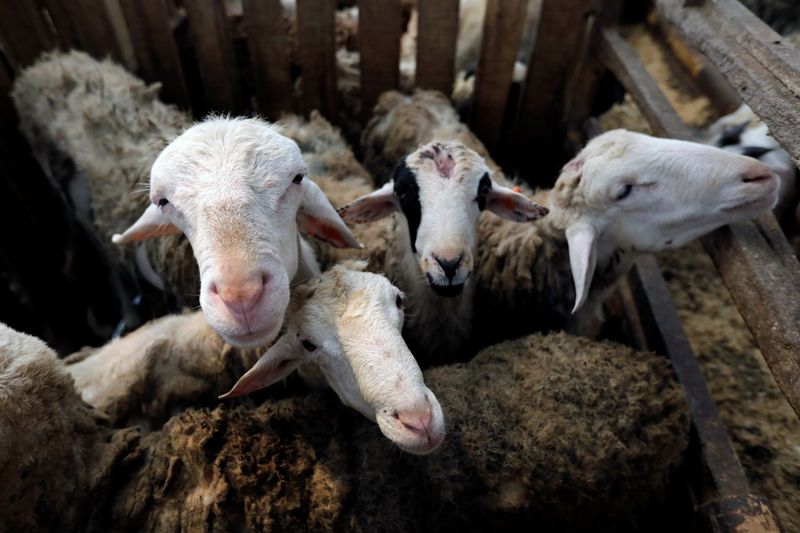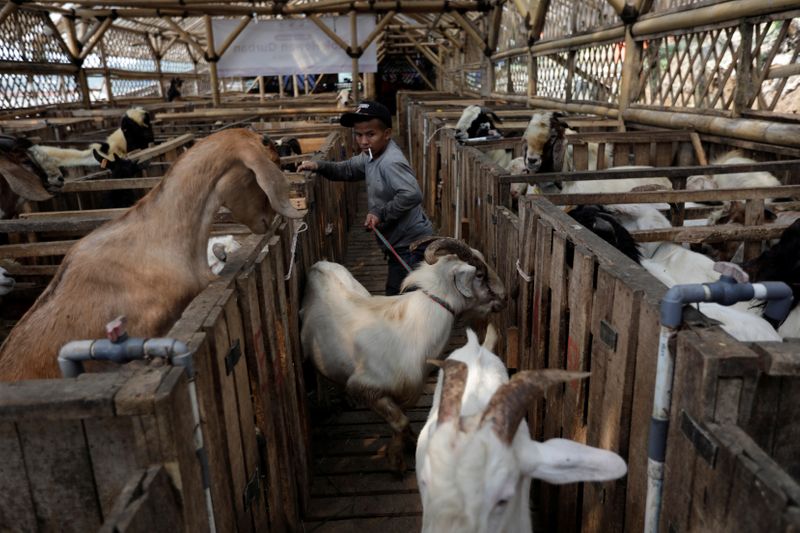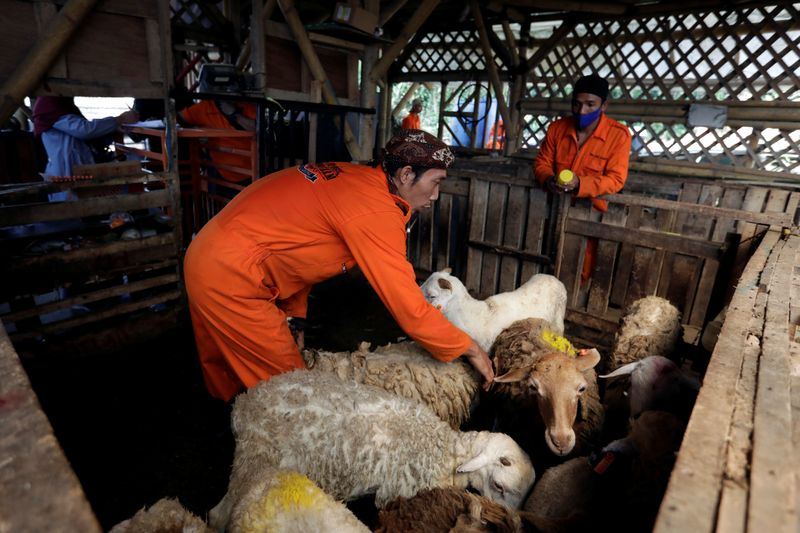BOGOR, Indonesia (Reuters) – As Indonesian Muslims prepare to celebrate the Eid al-Adha festival, farms are seeing a boom in online sales that limit the need for people to visit farms during the pandemic to buy the goats, sheep and cows traditionally sacrificed at this time.
Health experts have been concerned about the risks of the coronavirus being spread during religious festivals in the world’s biggest Muslim-majority country when people typically gather in mosques and homes, or travel to their home towns.
Mahir Farm launched online sales of livestock in 2018 and this year the farm near Bogor, south of the capital Jakarta, has seen sales surge 50% compared to 2019.
“We know that people rarely go out or they are worried about interacting with others during the COVID-19 pandemic,” said Azmi Abdul Gaffar, 22, who is one of the farm’s owners.
Indonesia has reported more than 100,000 coronavirus cases and over 4,800 fatalities, the highest toll in East Asia.
“That’s why this (selling online) is an answer to the problem,” said Gaffar.
During Eid al-Adha, Muslims around the world traditionally purchase livestock and after slaughter the meat is distributed to poorer members of the community.
Mahir farm has sold 15,000 goats, sheep and cows via social media platforms ahead of the festival that starts on Friday, accounting for at least 80% of the season’s profit, Gaffar said.
The animals at the farm are also certified as COVID-19 free and undergo daily health checks by a veterinarian, he said.
Another farm owner in the area, Ahmad Risyad, said having online sales meant buyers did not have to visit his premises.
And for one of his customers, buying livestock this way has clear advantages.
“It’s safer to do the transaction online, and it is much cheaper,” said Reza Wibisono, 24, who received a delivery of sheep purchased online for 3.1 million rupiah ($214).
(Reporting by Heru Asprihanto; Writing by Ed Davies; Editing by Christopher Cushing)


























